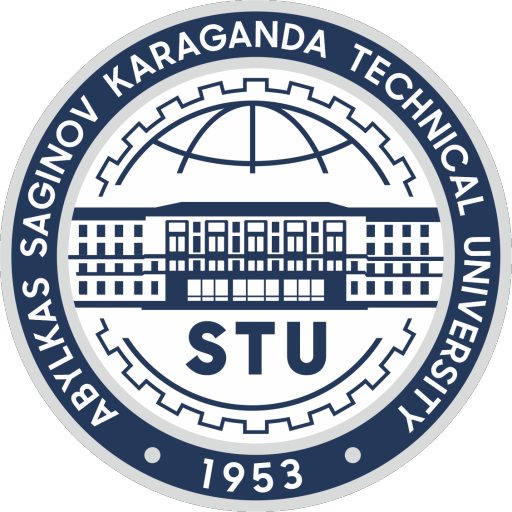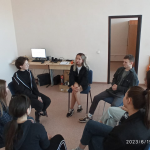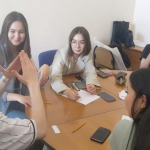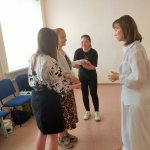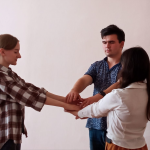Within the framework of the research project “Capacity building for innovative training of engineers through STEAM education” in the frame of budget financing of the Committee of Science, MS&HE of RK the pedagogical experiment with the introduction of STEAM technologies for the educational programs “Architecture” and “Information Systems” during professional practice was carried out.
To solve the task in the practice of the EP “Architecture” students were divided into teams and mentors – senior students – were assigned to each team of the experimental group.
The objectives of the experiment were defined:
– development of group work skills in teams (imitation of a real professional team);
– the opportunity for professional and personal development in an unusual environment;
– developing solutions to conflict situations and contradictions in the profession
– development of mentoring skills among mentors.
The psychological service was asked to assist in the delivery of team building training that would presumably help students to work in teams in industrial practice and to use the communication and conflict resolution skills acquired in other professional activities.
The service staff enthusiastically supported the project. The systematic work of the psychologists with the students and teachers lasted five weeks and was not limited to weekly training. Group and individual lessons were held with the students. On the basis of these lessons, the teachers were given recommendations for regulating the educational process.
The analysis of the results of the experiment confirmed the need for psychological support in the educational process of students and teachers, as well as the need to clarify the specifics of interaction with a psychologist, which consists of active work of the applicant. It was also revealed that there is a need for separate training of mentors among students who want to become mentors. An organized club would help teach how to share their own experiences, help resolve conflict situations, and create communication links between students and teachers.
The informal approach and detailed work of the team of psychologists allowed us to bring the professional practice to a new level when not only professional competencies are formed and previously acquired knowledge is consolidated, but also soft skills, which corresponds to the concept of STEAM education.
The research team under its leader, Damira Jantassova, would like to express her gratitude for the interesting joint work of Natalia Litvinova and all the staff of the psychological service of the university, without which the experiment and the high level of students’ work would have been impossible.
